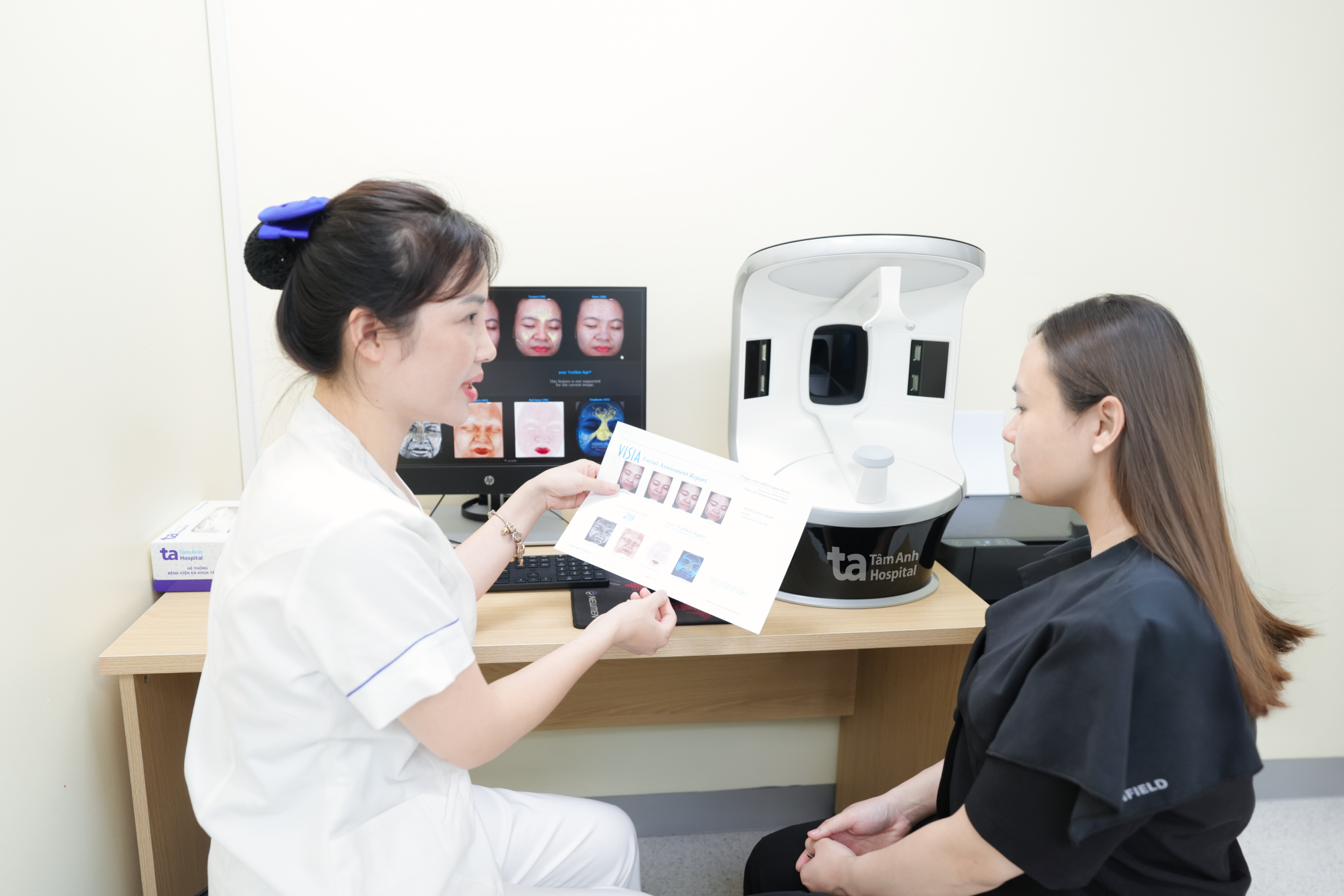Healthy skin isn't just the result of expensive cosmetics, but also depends on daily habits, says Dr. Quach Thu Trang from the Dermatology Department of Tam Anh General Hospital, Hanoi.
Drinking warm water after waking up rehydrates the body after a night of natural water loss through respiration and excretion. Adequate hydration leads to softer, more elastic, and brighter skin. It also boosts circulation, supports liver and kidney function, and enhances metabolism. Adding honey and a few lemon slices can further improve hydration and provide antioxidants. The vitamin C in lemon brightens skin and helps prevent acne.
Basic facial cleansing after waking up unclogs pores, preparing the skin to absorb nutrients from subsequent skincare steps. Overnight, the skin accumulates sebum, dirt, and bacteria from the environment or bedding. Washing your face with cool water for about 60 seconds is enough for effective cleansing without damaging the skin's protective barrier.
Those with oily or acne-prone skin should choose a cleanser containing salicylic acid, a BHA that deeply cleanses pores, controls sebum, and reduces acne formation. For dry or sensitive skin, gentle products with a balanced pH (around 5.5) are recommended. These should be free of alcohol, soap, and fragrances to avoid irritation and dryness. Gently massaging the face in circular motions from the inside out stimulates blood circulation, relaxes facial muscles, supports lymphatic drainage, and naturally brightens the skin.
Applying a cold towel after washing your face for 1-2 minutes helps tighten pores, reduce puffiness, and soothe the skin. Afterward, use a toner to balance pH and prepare the skin for better absorption of nutrients from subsequent products.
Proper moisturizing restores the skin's natural protective barrier, prevents water loss, increases softness and suppleness, slows down the aging process, reduces fine lines, and minimizes breakouts caused by dehydration and excess oil production. Dr. Trang recommends using appropriate moisturizing products, including serums containing active ingredients like hyaluronic acid, niacinamide, and glycerin, which effectively attract and retain moisture. Choose a moisturizer based on your skin type to optimize results and avoid clogged pores.
 |
A dermatologist consults a woman. Photo: Tam Anh General Hospital
Apply broad-spectrum sunscreen with an SPF of 30 or higher to protect skin cells from the sun's harmful rays. Even on cloudy days or indoors, UVA/UVB rays can penetrate windows and negatively impact the skin. Therefore, apply sunscreen at least 15-20 minutes before going outside. If spending time outdoors, reapply every 2-3 hours to maintain protection against aging, dark spots, and skin cancer.
Light exercise for 10-20 minutes each morning, such as walking, stretching, or yoga, increases blood circulation, delivers oxygen and nutrients to the skin, and eliminates toxins through sweat. If you lack time for a workout, meditation or deep breathing for a few minutes can help reduce stress, a factor that increases cortisol levels, leading to acne, dark spots, and premature aging.
A healthy breakfast rich in protein, fiber, healthy fats, and vitamins, especially vitamin C and zinc, is essential. It provides energy and helps stabilize blood sugar, nourishing the skin from within.
Fruits rich in vitamin C, like oranges, kiwis, and strawberries, promote collagen production and brighten the skin. Oats, chia seeds, and flaxseeds provide omega-3s and fiber, reducing inflammation and protecting the skin barrier. Eggs, yogurt, and beans are good sources of protein and zinc, which support skin regeneration and repair.
Limit refined sugar, full-fat dairy, and fast food, as they can increase inflammation, cause breakouts, and dull the skin over time.
Avoid heavy makeup, which can clog pores. Use light, oil-free foundation with added moisturizer and sunscreen. Remove makeup thoroughly at the end of the day to prevent breakouts and dullness.
Avoid using your phone immediately after waking up. Blue light from screens can penetrate the epidermis and affect deeper layers of the skin. According to Dr. Trang, prolonged exposure to blue light increases oxidative stress, damages cell DNA, causes hyperpigmentation, and accelerates premature aging.
Consistently following these habits not only promotes healthy, radiant skin but also invests in long-term health and beauty.
Trinh Mai
| Readers can submit questions about dermatology and skin aesthetics here for doctors to answer. |












